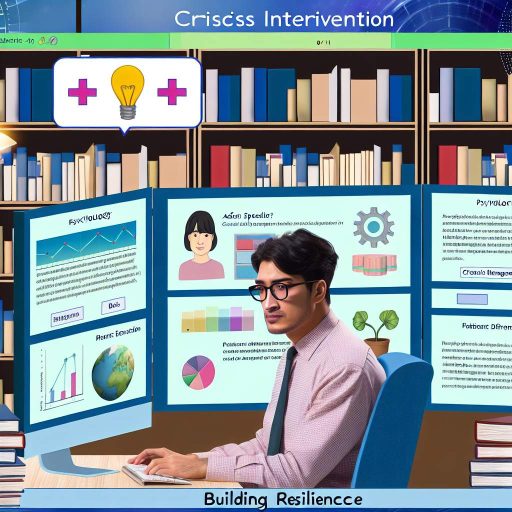Introduction
Community health workers (CHWs) are individuals who serve as a bridge between their community and healthcare providers.
They play a crucial role in providing culturally competent care and promoting health education within their communities.
CHWs are typically trusted members of the community and are effective in addressing healthcare disparities and improving health outcomes.
Importance of Community Health Workers
CHWs are essential in the healthcare system as they help to improve access to healthcare services for underserved populations.
They assist in increasing health literacy, promoting preventive care, and advocating for the needs of their community.
CHWs also play a vital role in reducing healthcare costs by preventing unnecessary emergency room visits and hospital admissions.
Their personalized approach to care ensures that community members receive the support and resources they need to lead healthier lives.
Overall, CHWs are invaluable assets in empowering communities to take control of their health and well-being.
Definition of a Community Health Worker
Community Health Workers (CHWs) are frontline public health workers who are trusted members of the community they serve.
They have a deep understanding of the community’s culture, language, and social norms.
CHWs work to bridge the gap between healthcare providers and the communities they serve.
They play a crucial role in promoting health awareness and disease prevention.
Role in Promoting Health Awareness and Disease Prevention
CHWs educate community members about various health issues such as nutrition, exercise, and disease prevention measures.
They conduct outreach programs to raise awareness about preventive care and screenings.
CHWs provide resources and support to individuals to help them lead healthier lifestyles.
They work to address social determinants of health that may impact the well-being of the community.
Importance of Cultural Competency and Community Engagement
Cultural competency is essential for CHWs to effectively communicate health information to diverse populations.
CHWs respect and understand the cultural beliefs and practices of the communities they serve.
They build trust and rapport with community members by being sensitive to their cultural values and norms.
Community engagement is key to the success of CHWs’ efforts in promoting health and preventing diseases.
Transform Your Career Today
Unlock a personalized career strategy that drives real results. Get tailored advice and a roadmap designed just for you.
Start NowTraining and Qualifications
Community health workers play a crucial role in improving the health and well-being of their communities.
To effectively fulfill their duties, these individuals must undergo specific training and hold the necessary qualifications.
Education Requirements for Becoming a Community Health Worker
While the exact educational requirements may vary depending on the employer and the specific role, most community health worker positions require a high school diploma or equivalent.
Some employers may prefer candidates with additional coursework in health education, public health, or related fields.
Many community health workers also undergo on-the-job training or enroll in certificate programs to gain specialized knowledge and skills.
These programs cover topics such as community outreach, health promotion, and cultural competency, preparing individuals for the unique challenges they may face in their roles.
Certification and Licensure Options
Although certification is not always required to work as a community health worker, obtaining a credential can demonstrate a commitment to professionalism and competency in the field.
Several organizations offer certification programs, such as the National Commission for Health Education Credentialing (NCHEC).
In some states, community health workers may need to obtain licensure to practice legally.
Licensure requirements typically involve completing a specific training program, passing an exam, and fulfilling ongoing continuing education requirements to maintain licensure.
Importance of Ongoing Professional Development and Training
Continuing education is essential for community health workers to stay up-to-date with the latest research, best practices, and guidelines in the field.
Ongoing training opportunities allow these professionals to expand their skills, enhance their knowledge, and better serve their communities.
Professional development activities may include attending workshops, conferences, or seminars, participating in online training courses, or pursuing advanced certifications in specialized areas of practice.
By continuing to invest in their education and training, community health workers can provide more effective and comprehensive care to the populations they serve.
Uncover the Details: Role of Technology in Community Health Worker Efficiency
Community Health Workers’ Responsibilities
Community Health Workers play a vital role in promoting healthcare and wellness within communities.
They are often the frontline workers who provide essential health services, education, and support to individuals and families.
This section explores the various responsibilities of a Community Health Worker.
Conducting Health Assessments and Screenings
One of the primary responsibilities of a Community Health Worker is conducting health assessments and screenings within the community.
Showcase Your Business Today
Reach thousands of readers actively exploring professional services. Publish your business profile and grow your audience now.
Publish NowThis involves gathering information about individuals’ health status, identifying any potential health concerns, and referring them to appropriate healthcare providers for further evaluation and treatment.
Developing and Implementing Health Education Programs
Community Health Workers are also tasked with developing and implementing health education programs to promote preventive care and healthy lifestyle choices among community members.
They may organize workshops, seminars, and training sessions to educate individuals on various health topics, such as nutrition, exercise, and disease prevention.
Providing Referrals to Healthcare Services
Another important responsibility of a Community Health Worker is connecting community members to healthcare services and resources.
This may include assisting individuals with scheduling appointments, navigating the healthcare system, and accessing necessary medical treatments and support services.
Community Health Workers serve as a bridge between individuals and healthcare providers, ensuring that individuals receive the care they need in a timely manner.
Advocating for Community Health Needs
Community Health Workers play a vital role in advocating for the health needs and rights of community members.
They may collaborate with local organizations, policymakers, and healthcare providers to address systemic health issues, promote health equity, and improve access to quality healthcare services for underserved populations.
Community Health Workers serve as advocates for social change and work towards creating a healthier and more equitable community for all.
Community Health Workers have diverse responsibilities that contribute to improving the health and well-being of communities.
From conducting health assessments and screenings to developing and implementing health education programs, providing referrals to healthcare services, and advocating for community health needs, Community Health Workers play a crucial role in promoting health equity and wellness within communities.
Explore Further: Impact of Case Managers on Community Well-being
Collaboration with Healthcare Providers
Community Health Workers (CHWs) play a crucial role in bridging the gap between healthcare providers and the communities they serve.
By establishing strong partnerships with healthcare professionals, CHWs can enhance the overall quality of care delivered to patients.
Building partnerships with healthcare professionals allows CHWs to access valuable resources, expertise, and support to address the healthcare needs of their communities effectively.
By working collaboratively with providers, CHWs can leverage their unique understanding of community dynamics to enhance health outcomes.
Facilitating communication between patients and providers is another vital aspect of the CHW’s role.
CHWs serve as liaisons between healthcare teams and individuals in the community.
They help ensure that patients receive the information and support they need to make informed decisions about their health.
CHWs also play a key role in ensuring continuity of care for patients.
By working closely with healthcare providers, CHWs can help coordinate appointments, follow-ups, and referrals.
This coordination ensures that patients receive the ongoing care they need to manage their health effectively.
Collaboration with healthcare providers is essential for CHWs to support the health and well-being of their communities.
Through building partnerships, facilitating communication, and ensuring continuity of care, CHWs can help bridge the gap between healthcare systems and the communities they serve.
- Building partnerships with healthcare professionals
- Facilitating communication between patients and providers
- Ensuring continuity of care for patients
See Related Content: Understanding the Role of a Child Welfare Specialist

Community Outreach and Engagement
Community health workers play a crucial role in outreach and engagement within the community.
They work closely with community members to assess their healthcare needs accurately.
By engaging with the population directly, they are able to gather valuable insights.
These insights can inform healthcare strategies and interventions.
Building trust and relationships with diverse populations is a key aspect of the community health worker’s duties.
They often serve as a bridge between the healthcare system and the community.
Helping to establish rapport and mutual understanding is essential for effective communication.
This trust is essential for collaboration in promoting health and wellness.
Community health workers also take the lead in organizing events to promote health.
These initiatives could include health fairs and screenings.
They might also include educational workshops and support groups.
Bringing community members together creates opportunities for learning, networking, and support.
Through these initiatives, community health workers can raise awareness about important health issues.
They empower individuals to take charge of their well-being.
Providing resources helps community members access healthcare services.
Showcase Your Business Today
Reach thousands of readers actively exploring professional services. Publish your business profile and grow your audience now.
Publish NowNavigating the complexities of the healthcare system can be challenging.
Overall, community outreach and engagement are essential components of a community health worker’s role.
By actively engaging with the community, they contribute to improving health outcomes.
Fostering a culture of wellness is critical within the population they serve.
- Engaging with community members to assess healthcare needs
- Building trust and relationships with diverse populations
- Organizing community events and initiatives to promote health
Discover More: Key Benefits of Hiring a Life Skills Instructor
Data Collection and Reporting
Community health workers play a crucial role in collecting and documenting health information.
They gather data on patient demographics, symptoms, and health behaviors to identify trends and patterns.
By tracking health outcomes and program effectiveness, they can assess the impact of interventions on community health.
Community health workers also monitor the progress of individuals in health programs and provide feedback to healthcare providers.
They are responsible for accurately reporting their findings to healthcare organizations and public health agencies.
These reports help healthcare professionals make informed decisions about resource allocation and program planning.
Significance of Community Health Workers in Health Equity
Community health workers play a crucial role in bridging the gap between healthcare services and underserved communities.
They provide education, support, and advocacy to ensure that all individuals have access to necessary healthcare resources.
By focusing on prevention and health promotion, community health workers work to address the root causes of health disparities.
Their efforts help to improve the overall health outcomes of the communities they serve and contribute to achieving health equity.
Encouragement for Individuals Interested in Community Health Careers
If you are passionate about making a difference in the lives of others, a career as a community health worker may be right for you.
By becoming a community health worker, you can directly impact the health and well-being of your community.
Through education, outreach, and support, you can help empower individuals to take control of their health and improve their quality of life.
Consider exploring educational opportunities and training programs to kickstart your career in this rewarding field.
Take the first step towards creating positive change and promoting health equity in your community by becoming a community health worker.
Additional Resources
Our Epidemic of Loneliness and Isolation
[E-Books for Sale]
The Big Book of 500 High-Paying Jobs in America: Unlock Your Earning Potential
$19.99 • 500 High-Paying Jobs • 330 pages
Explore 500 high-paying jobs in America and learn how to boost your career, earn more, and achieve success!
See All 500 High-Paying Jobs of this E-Book
1001 Professions Without a Degree: High-Paying American Jobs You Can Start Now
$19.99 • 1001 Professions Without a Degree • 174 pages
Discover 1001 high-paying jobs without a degree! Unlock career tips, skills, and success strategies for just $19.99!




